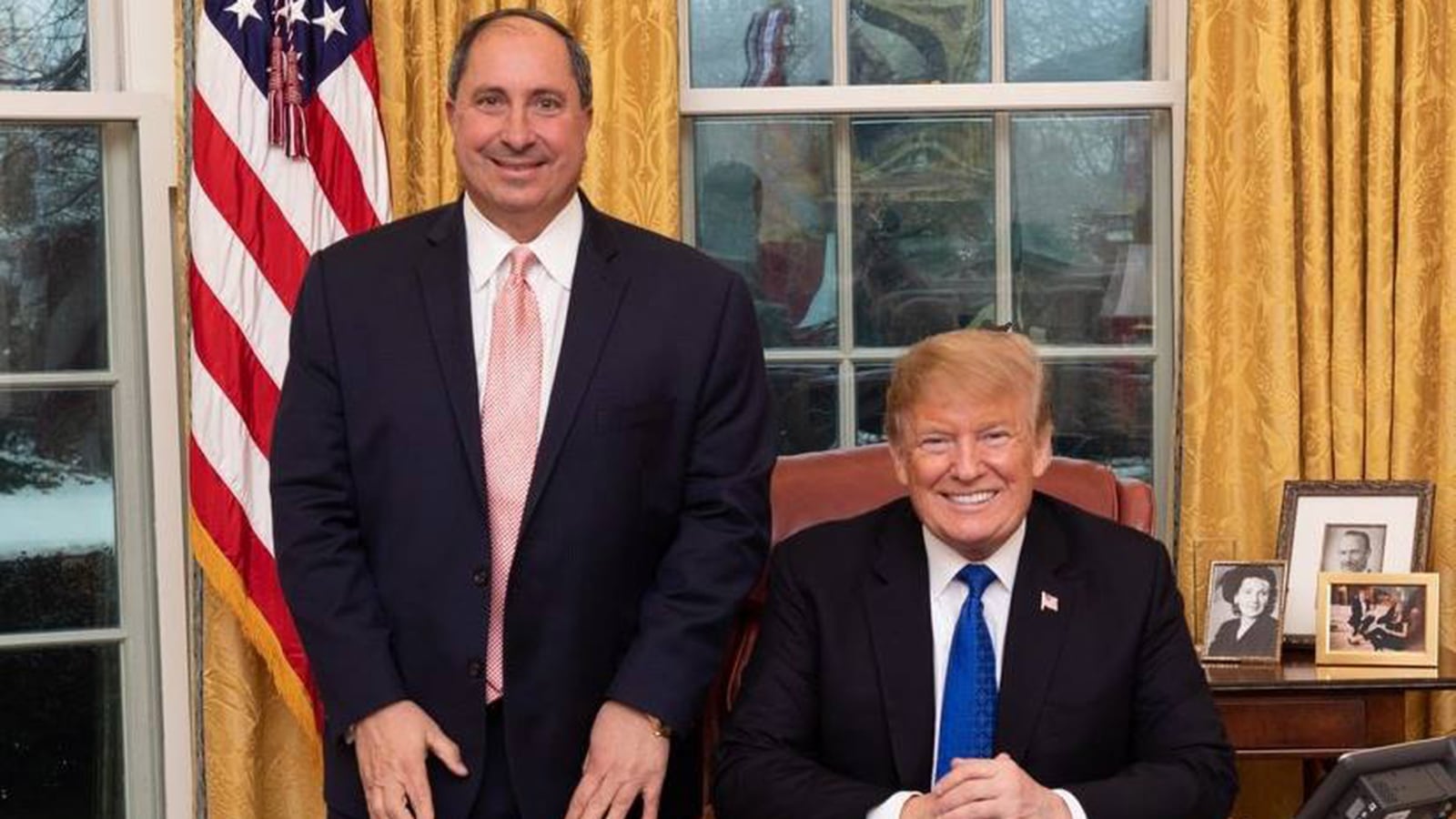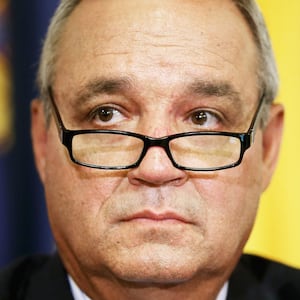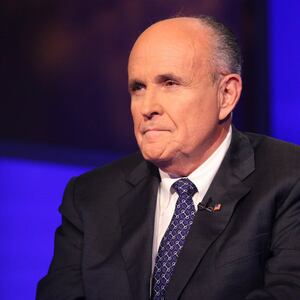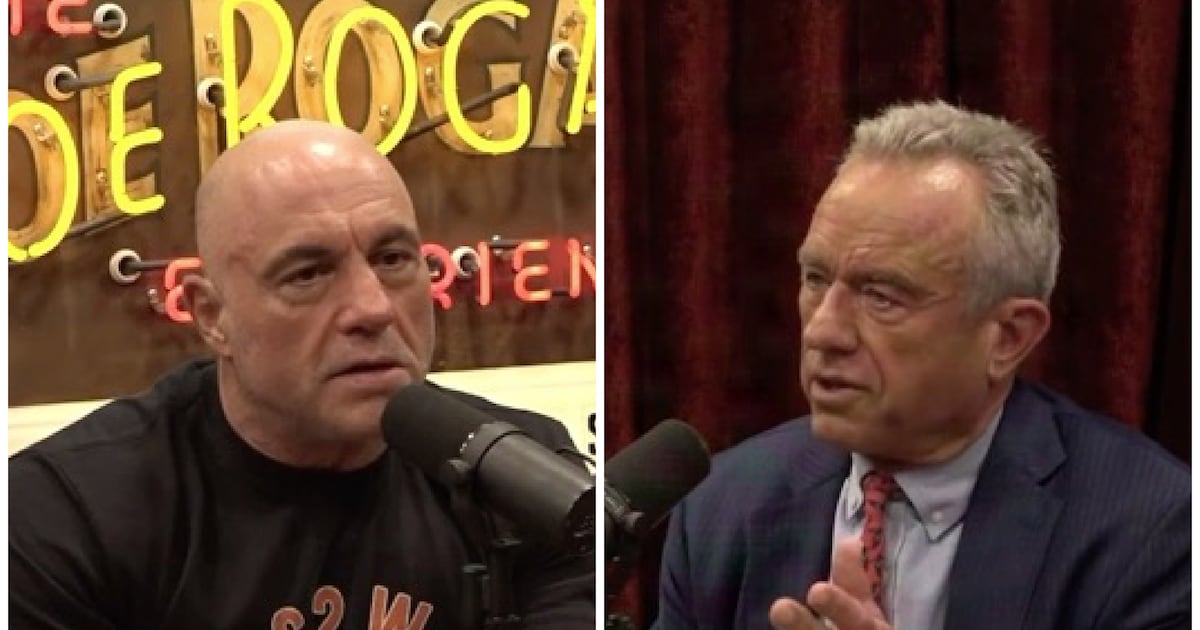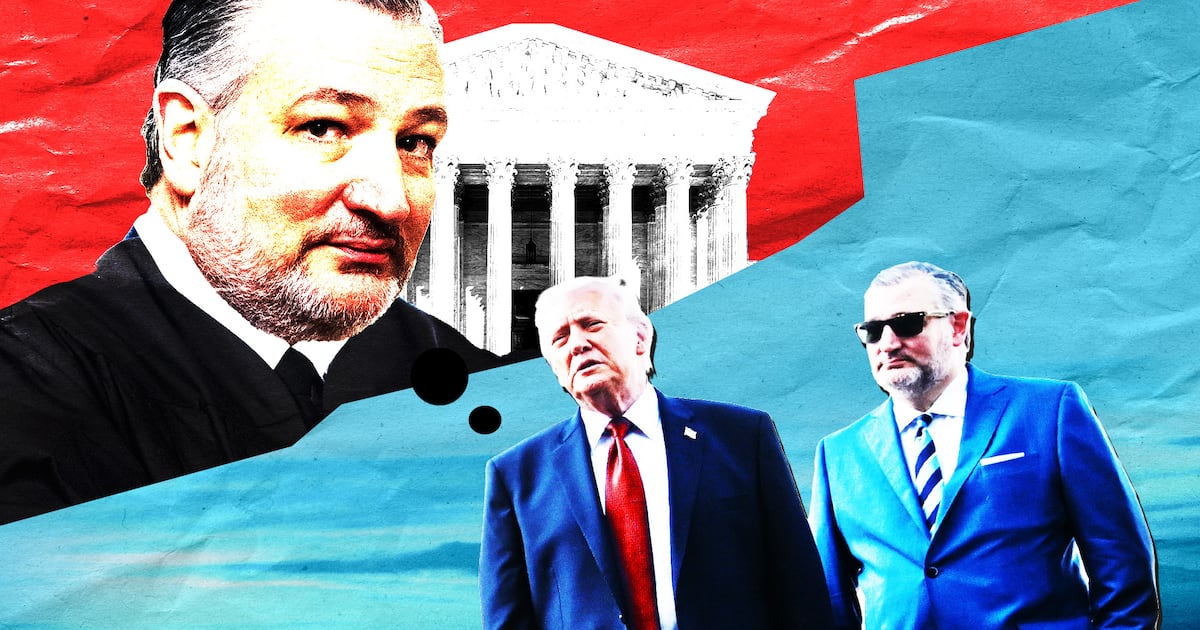A popular conservative talk radio host and former Trump campaign official aired interviews with Qatari government officials and broadcast segments promoting the government as his show was paid $180,000 by a Qatari state-funded nonprofit.
Documents filed with the Justice Department late last week show that the Qatar-America Institute, a nonprofit financed by the country’s embassy in Washington and other government agencies in Doha, made the payment in May 2018 to Common Sense Media Holdings LLC, the company that produces conservative pundit John Fredericks’ radio show.
The Institute reported in the same DOJ filing that it secured from Fredericks “access to key guests”; “regular show appearances by highly ranking Qatar officials, business leaders, experts;” the broadcast of “live shows every other month at QAI to promote Qatar's progress” including in hosting the 2022 World Cup; and “regular discussions with U.S. based and overseas Qatar officials for background and education.”
In an interview on Thursday, Fredericks described the arrangement as a standard advertiser relationship. The $180,000—itemized in QAI’s filing with DOJ as “Disbursements for expenses associated with shows, events, and discussions”—bought promotions through his radio show from October 2017 through October 2019, he said. Those promotions frequently included “live reads,” or paid advertising read on air by the host himself.
“They were paying me to promote their various events, which I did in my libraries when I was on the show,” Fredericks said. “That was what the engagement was for.”
Amid that advertising campaign, Fredericks also interviewed senior Qatari government officials including its ambassador to the U.S. and the head of the Qatar National Human Rights Committee. He said he never invited guests on the air as part of that paid promotion but that he booked individuals associated with QAI and the Qatari government because “they were interesting guests to have on.”
“I think when people are looking for something, they accuse you of pay-to-play. Everybody accuses everybody of that,” Frederick said. “At the end of the day, I’m in business to sell advertising… The advertising has got to make sense, it’s got to have an audience, any guests that you have on have to be interesting, so if they were not interesting the relationship wouldn't have continued.”
The QAI did not respond to requests for comment. But the group’s filing under the Foreign Agents Registration Act indicates that its payment to Fredericks’ radio show effectively came from the Qatari embassy in Washington. Fredericks said his business relationship with QAI lasted for two years, and ended in October 2019. That same month, the Qatari embassy paid $180,000 to QAI, itemized in the latter’s FARA filing as a payment for “Radio Interviews with Qatari Experts.”
The filing was submitted to DOJ last week after U.S. officials questioned whether QAI was acting as an unregistered foreign agent for the Gulf nation. “QAI did not believe [its] activities constituted political activities under FARA,” the group wrote in its filing. But “in response to a March 12, 2020, letter from the U.S. Department of Justice, QAI has made the decision to register.”
QAI is a charitable nonprofit based in Washington. Its website describes the group as “an independent 501(c)3 nonprofit research institute that hosts an open cultural space to convene, facilitate cross-cultural exchange programs, and develop educational research on the cultural and strategic ties between the United States and the State of Qatar.”
The FARA filing it submitted last week disclosed more than $6.2 million in payments to QAI from Qatari government entities. The bulk of that financial commitment, about $5.6 million, has come from the country’s U.S. embassy. It also received $495,000 from the Qatar National Tourism Council, and $150,000 from the Supreme Committee for Delivery and Legacy, the Qatari government agency overseeing its hosting of the World Cup in 2022.
Fredericks said he was not aware that QAI was funded by the Qatari government, but indicated that it made no difference to him where the money came from. “I had a good relationship with them. I enjoyed the people there, they were all very nice to work with,” he said. “Where their funding came from was really not relevant to me.”
He insisted that he saw no obligation to disclose in interviews with Qatari or QAI officials that the organization was paying his radio show. “I just don’t think that’s relevant to the conversation,” he said. “I'm under no obligation to do that because I'm going about it the right way.”
Fredericks, who calls himself the “Godzilla of Truth,” is syndicated across a handful of AM and FM stations in Virginia. He chaired the president’s 2016 campaign in the Commonwealth, and is on the reelection campaign’s advisory board, according to the bio on his website. Fredericks boasts that he’s interviewed Trump at least a dozen times. When the White House decided early in Trump’s tenure to beam talk radio hosts into the briefing room to ask questions of the White House press secretary, Fredericks was one of the radio talkers honored.
His radio show generally broadcasts from Richmond, Virginia. But on occasion he’s set up shop at the offices of a lobbying firm run by a pair of former senior Trump campaign aides. The firm, Avenue Strategies, is also an advertiser on Fredericks’ show. And its clients happen to include the Qatari embassy.
Fredericks’ interest in Qatari affairs appears to have picked up in early 2018. His Twitter account, where he promotes radio segments and opines on current events, mentioned it just once prior to then. But in February of that year, a few months after Fredericks said his advertising relationship with the QAI began, he interviewed the country’s ambassador to Washington. By March, Fredericks was broadcasting from Doha, where he interviewed multiple senior government officials about a Saudi-led blockade against Qatar. That blockade was ostensibly designed to punish Doha for its sponsorship of terrorism, and prompted a lobbying blitz in the U.S. by both sides designed to boost their standing in Washington and secure U.S. support.
Fredericks continues to have strong opinions about that blockade. “That was ridiculous,” he told The Daily Beast. “I thought the embargo was a complete and utter disaster, still is...That’s my independent judgment based on my analysis. Probably one of the stupidest things that’s ever been done.”
During his 2018 swing through Doha, Fredericks also sat down with the head of the Qatar Foundation, a state-funded nonprofit, to discuss “Qatar’s unique empowerment of women in the Gulf,” as he put it. Later that day, he followed up with his own testimonial: “Unbelievable and breathtaking progressive reforms,” he tweeted of Doha. “Women running Govt agencies, banks, businesses,etc. Maybe that’s why Saudis engineered embargo? Too much freedom for women in Qatar?”
The QAI was pleased enough with Fredericks’ visit that it promoted his tour of the country on its own website. Its post went up on April 19, 2018. Less than two weeks later, QAI reported writing Fredericks’ company that $180,000 check.
In the ensuing months, Fredericks hosted more interviews with Qatar’s ambassador to the U.S. and with former U.S. diplomats who served in the Gulf nation. One of those former diplomats was Charles Untermeyer, the former U.S. ambassador to Doha, who made at least three appearances on Fredericks’ radio show in 2019.
Untermeyer also happens to be the founder and chairman of the QAI. It appears his most recent appearance on Fredericks’ show came on September 19, 2019. That was about a month before Fredericks says his advertiser relationship with the QAI ended.

